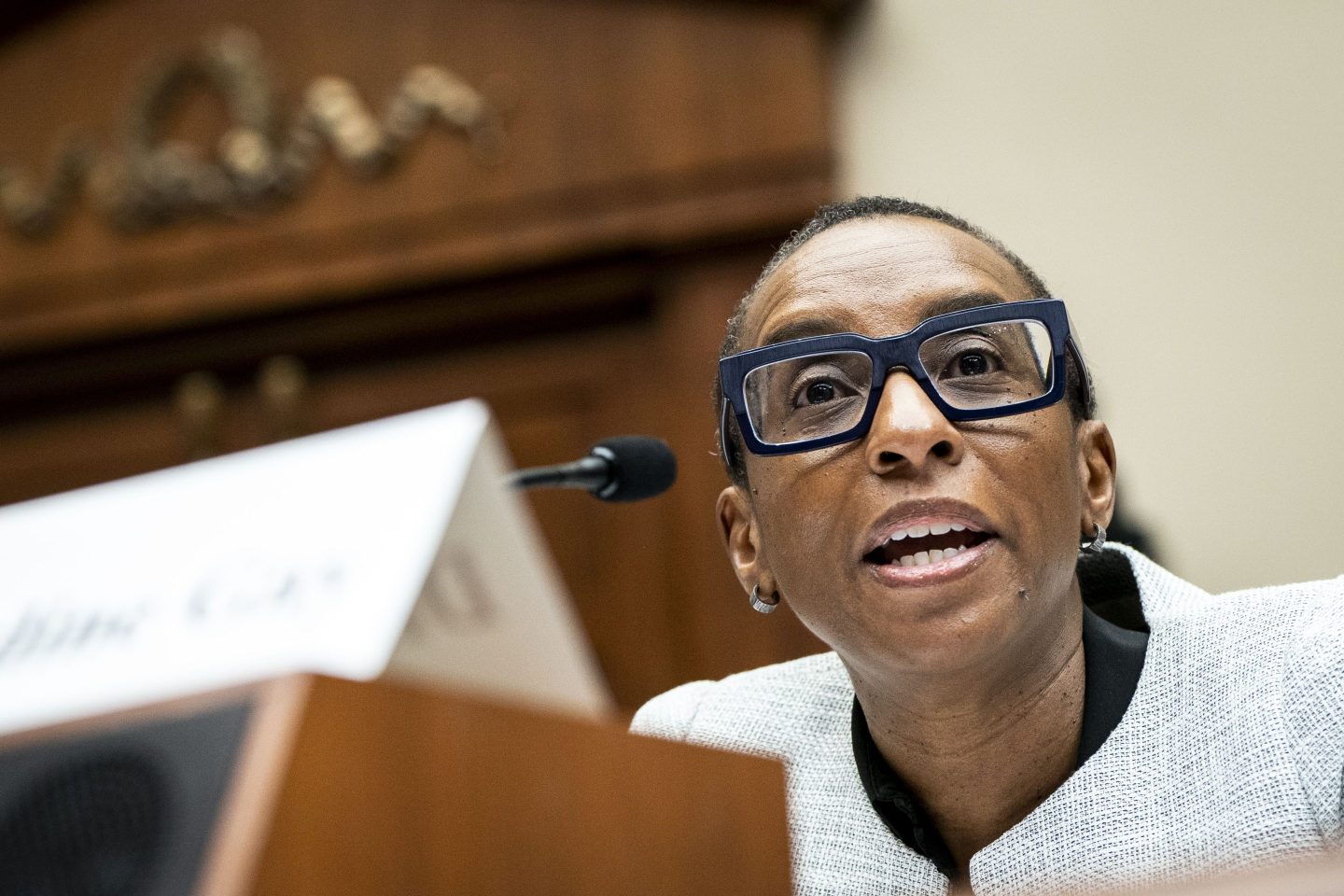Good afternoon.
The new year is well underway, and already, it’s been marred by the resignation of Harvard University president Claudine Gay. Her exit intensifies fears and frustrations many DEI practitioners have expressed in recent months over the future of the industry. (More on that below.)
In December, I shared my thoughts on where DEI is headed in 2024, and I still hold strong to the upbeat take. I also asked readers to respond in kind with their prognostications for the year. Herewith are four that caught my attention:
1. AI. There’s been much talk of diversity, or lack thereof, in AI. But there’s been little discussion on how AI can augment diversity teams’ work, particularly around collecting and managing human capital data, pay equity, and providing relevant insights across demographics, such as sending chatbot prompts to workers of color who seem disengaged or using AI to find employees with skills that can transfer to a higher-paying role. The possibilities are near limitless.
2. Quotas. Diversity quotas could soon be a thing of the past as companies look to skirt legal challenges and “reverse racism” claims. Instead, companies are increasingly prioritizing skills-based hiring, socioeconomic diversity, and changing job requirements to expand their talent pools without explicitly targeting a racial or ethnic group. “[We’re] spending the time with our CHROs challenging them to think about things that have been on job descriptions for decades, and questioning: Is this necessary? Or is this a barrier to helping find untapped talent? Or is it an essential part of the role that’s going to be performed?” Randy Patterson, managing director of human capital at Blackstone’s portfolio operations group, tells Fortune’s Paige McGlauflin.
3. Global. When one market is struggling, another can act as a buoy. Diversity heads, primarily at large corporations, are turning their attention to global outposts where there’s less resistance. The CDO of a Fortune 50 tech company told me she’s doubled down on DEI efforts in Latin America, particularly Brazil. Others are peering around the corner and prepping for the potential ramifications of geopolitical conflict. While the Israel-Hamas war left corporate America scrambling to support affected employees, the tension between China and Taiwan has long escalated. To wit, several diversity heads say they are collaborating with their AAPI employee resource groups should that conflict reach a head.
4. Results. Metrics matter. Diversity heads can no longer rely on corporate altruism or goodwill from employees and fellow C-suite leaders to forge ahead on DEI—especially as diversity blowback continues unabated. 2024 will center results over rhetoric and quantifying the business impact.
I’ll be in Davos for the World Economic Forum and will be holding meetings with chief diversity officers. Shoot me a line if you’d like to meet on the ground.
Ruth Umoh
@ruthumohnews
ruth.umoh@fortune.com
What’s Trending
Stepping down. Harvard University’s first Black president, Claudine Gay, resigned on Monday after facing mounting criticism over her response to antisemitism on campus and plagiarism allegations. Many conservatives view her departure as a win against DEI rhetoric, while Gay's defenders warn that her resignation could jeopardize academic freedom. Fortune
DEI and AI. Big tech companies like Google and Facebook are making cuts to their diversity teams while investing heavily in AI, the most pivotal new technology in decades. A lack of diversity during such a transformational period could prove disastrous for consumers and products. CNBC
On the horizon. Several state laws targeting diversity and inclusion will take effect this year. Texas signed a new state law banning DEI offices on public college campuses, mirroring legislation Florida passed in May prohibiting public universities from spending funds on DEI efforts. Axios
The Big Think
Political columnist Jonathan Chait offers a unique take on Gay’s tenure at Harvard and the “anti-woke” backlash that resulted in her ouster. Until a month ago, he notes, most of Gay’s critics were on the left. Then came the hearings, which turned her into a lightning rod in the right-wing fight against DEI. That was swiftly succeeded by the discovery of papers penned by Gay that breached academic rules of attribution. All told, it created the perfect storm for right-wing activists like Christopher Rufo to exploit.
“Harvard faced a terrible choice,” Chait writes. “Firing her would hand a victory to the braying mob…Keeping her would mean allowing the president of the university to follow a lower standard than its undergraduate students.” Intelligencer
This is the web version of raceAhead, our weekly newsletter on race, culture, and inclusive leadership. Sign up for free.












